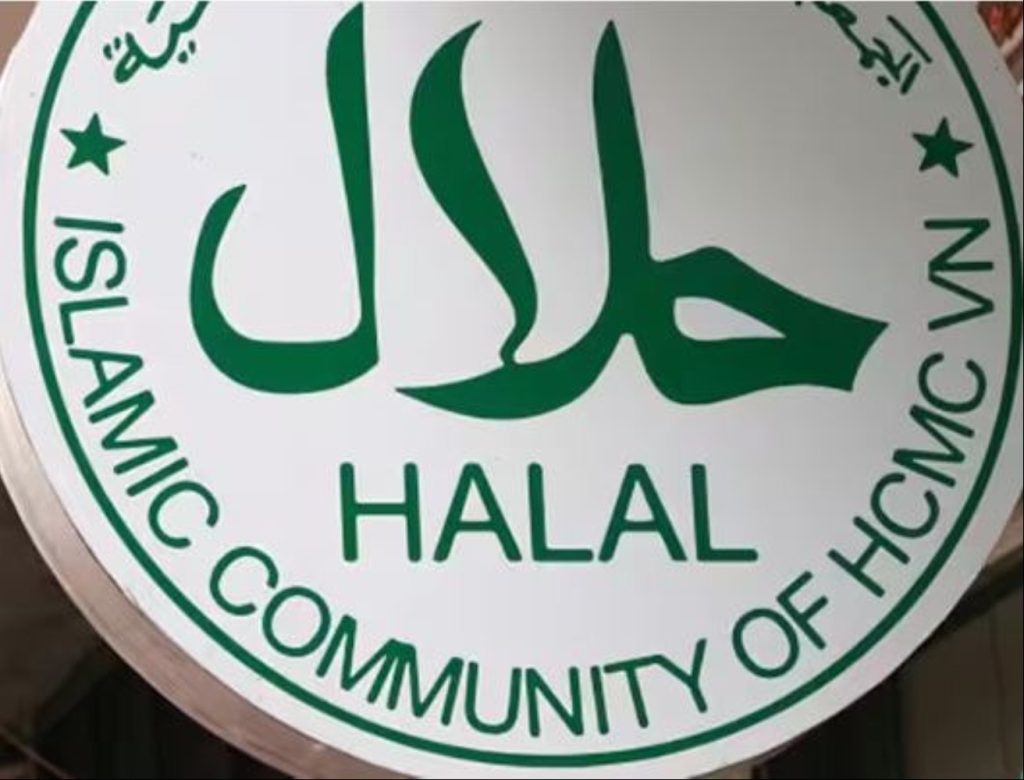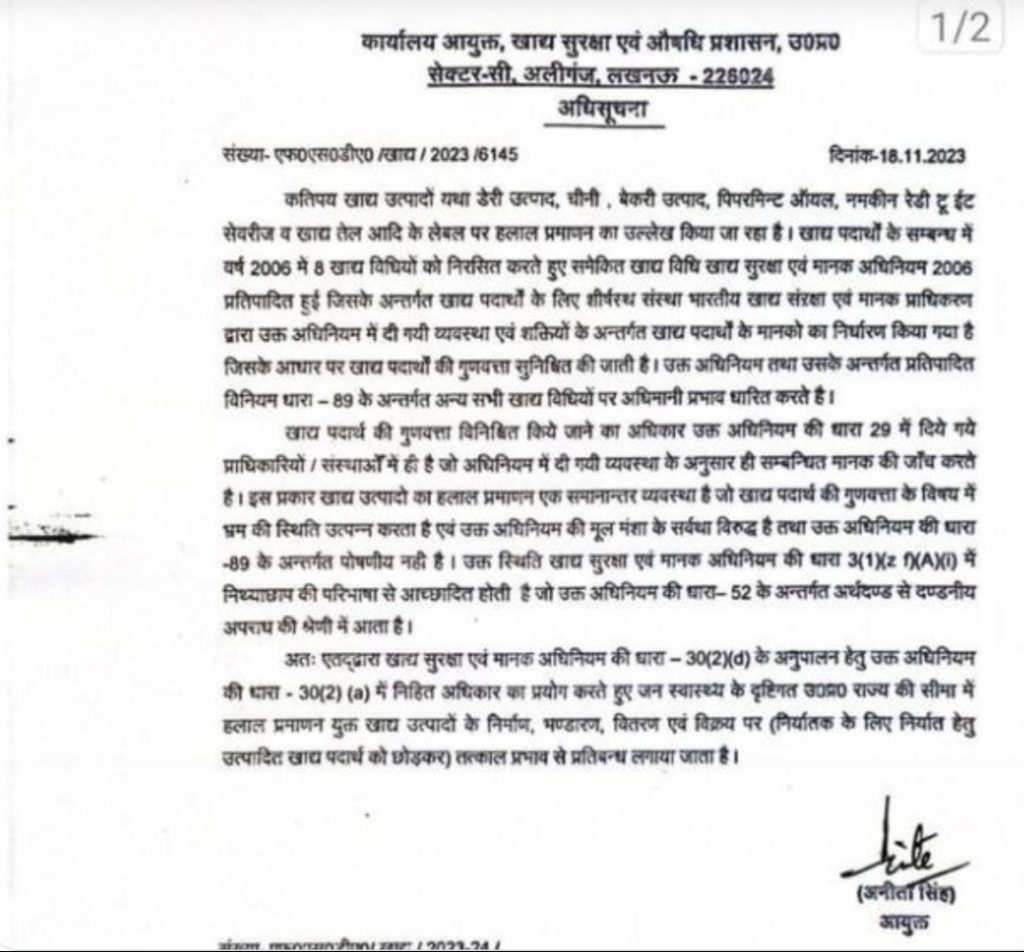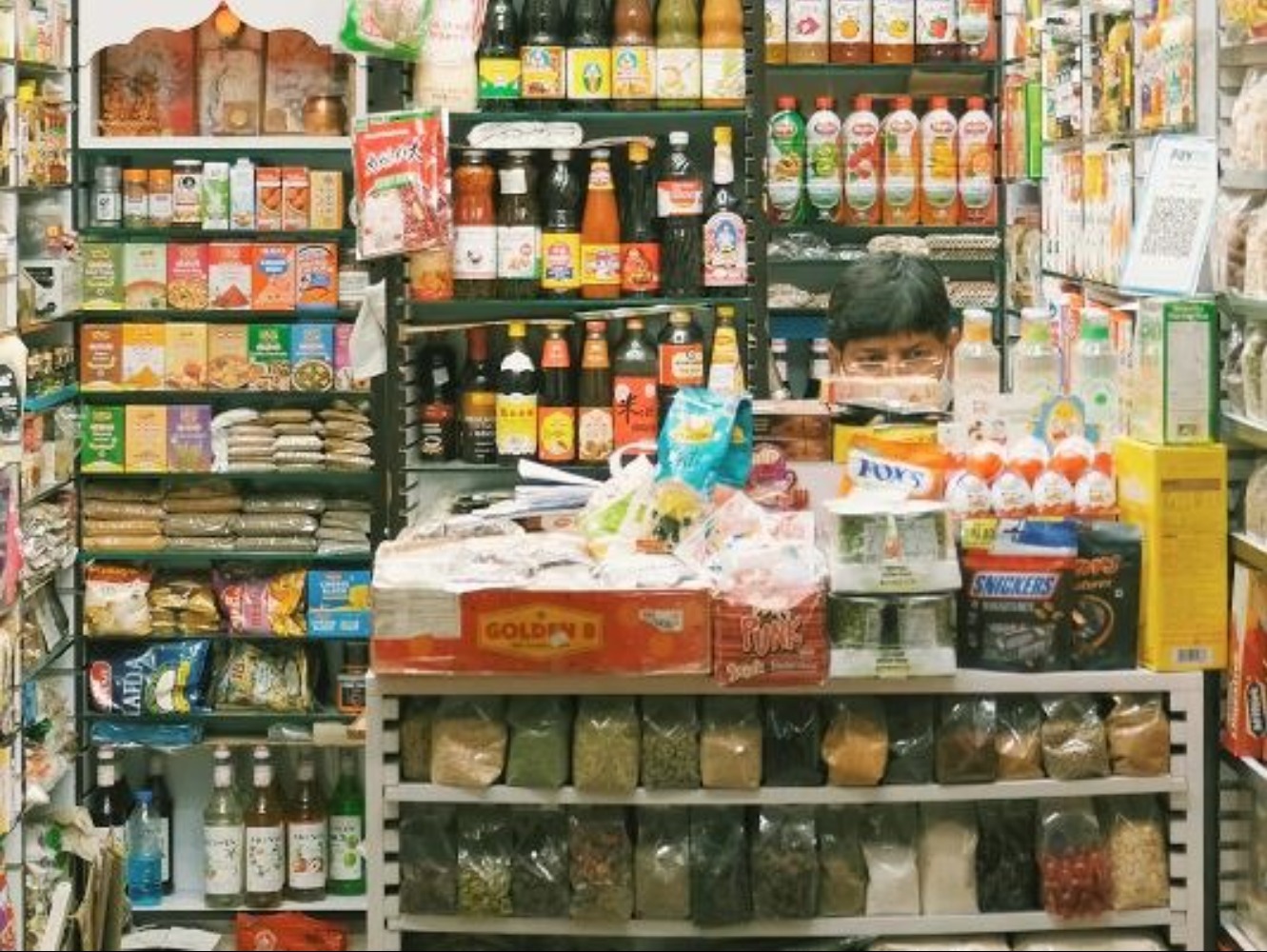Devanjana Mukherjee, Khabri Media
The decision, which has been met with a range of reactions from different quarters, reflects the intersection of cultural, religious, and economic factors.

Pic: Social Media
Production, storage, distribution, and sale of food products with the Halal certification has been forbidden with immediate effect, said the state government. Products manufactured for export, however, will not be subject to the restrictions. The move reflects an attempt to strike a balance between the cultural values of different communities and to address the concerns of those who feel their beliefs are not adequately considered. To subscribe please click tau.id/2iy6f and access our live channel.
Strict legal measures will be implemented against any individual or firm engaged in the production, storage, distribution, buying, and selling of Halal-certified medicines, medical devices, and cosmetics within Uttar Pradesh. Meanwhile, a process that ensures food and other products comply with Islamic dietary laws, has been a common practice in various industries globally.
DON’T MISS: UP to set new standards of cleanliness
Halal certification of food products is a parallel system which creates confusion regarding the quality of food items and is not tenable under Section 89 of the Food Law Food Safety and Standards Act. As per the order, The right to decide the quality of food items lies only with the authorities and institutions given in Section 29 of the said Act, who check the relevant standards as per the provisions of the Act.”

It has come to the notice that Halal certification is being used on food products, dairy products, confectionery (sugar and bakery products), peppermint oil, namkeen, ready to eat savoury, snacks and food oil, sea food, perfumes, colognes, pasta, cereals, cheese and cheese products, ice cream, eggs, coffee mixes, tea blends, seasonings, peanut butter, honey, syrups, dried fruits, frozen vegetables, processed food, sauces, dressing (cream used for salads), soup bases, etc.
It must be mentioned that in 2006, a food safety and standards act was formalised in which it was accredited that one FSSAI and ISI will check the food quality and a specific act dealing for it, following which halal certification on food products and others is illegal in state.
Halal certification, a process that ensures food and other products comply with Islamic dietary laws, has been a common practice in various industries globally. However, the ban in Uttar Pradesh is seen as an attempt to address concerns raised by certain groups regarding the economic implications and the perceived imposition of religious practices on a diverse population.




